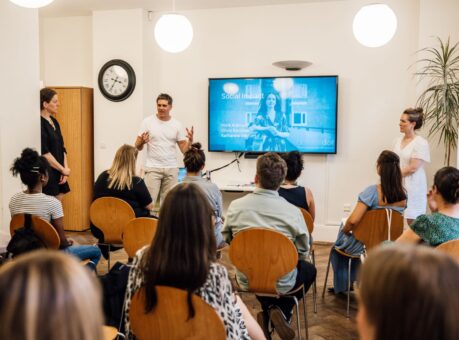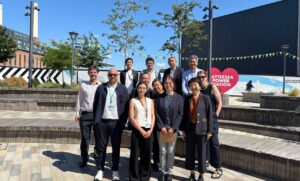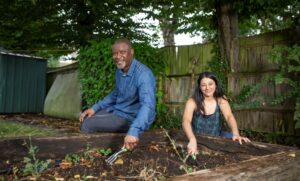
Happy birthday, Dot Dot Dot!
We’re celebrating 14 years in business, and a lot has changed since we launched in 2011 – here, our founder Katharine Hibbert reflects on more than a decade of improving lives in a housing crisis.
Back in 2011, Instagram didn’t exist and Netflix was sending out DVDs by post, not to mention the fact that the UK was still in the EU and Donald Trump was a minor reality TV star. But despite the many changes there have been two big constants.
It’s not a housing crisis any more – it’s a chronic condition
The first constant has been the lack of homes people can afford. I launched Dot Dot Dot because I thought that the unaffordability of homes to buy or rent was one of the biggest problems facing the UK – for the individuals at the sharp end of it, and for the prosperity of the economy as a whole.
It was bad back then, but it is now worse. Making the numbers stack up for renters or would-be buyers is harder because rents and house prices have continued to rise faster than earnings, and because deposits for home purchases are bigger and interest rates on mortgages are higher.
But it’s also worse than it was in 2011 because it’s not a crisis any more – it’s a chronic condition. Many of the people we’re housing or could house don’t expect their own situation to improve in the foreseeable future – and that’s a source of hopelessness which further crimps ambitions and prospects, as well as their wellbeing.
But the efforts of kind individuals are needed more than ever
This is depressing stuff for a birthday celebration but one of our values at Dot Dot Dot is that we are fair and straightforward, so we tell it like it is. However, we also have a positive and optimistic outlook, and that takes us to the other big constant of our 14 years in business – the need for and the value of people who want to make the world an incrementally better place.
International unrest and underfunding of British public services mean that it’s easy to feel desolate about problems at the global, national and local scale. While individuals may not be able to change the big picture singlehandedly, they can nudge it in a different direction. And that is just what our guardians have consistently tried to do, year in and year out.
Some do it by contributing their efforts to a large organisation trying to move the needle on the big picture, like Crisis, Oxfam, Cancer Research and The Wildlife Trust.
Others change the small picture right in front of them by helping an individual who clearly needs it, or making things slightly better in their immediate environment. Our guardian Nasra turned her distress at being mugged into motivation to organise a self-defence class for her neighbours, which Dot Dot Dot funded through our community events fund. Meanwhile, fellow guardian Alex used our funding to set up a mini library for young people in his neighbourhood, trying to put books that encourage creativity directly into their hands.
As well as making a tangible difference in their own right, these efforts to change the small picture may change the big picture too, by building trust, connections and understanding, which are the antidotes to hate and misinformation.
Reviewing our approach to social impact for the future
Our commitment to supporting our guardians to be great neighbours who contribute to their communities and to good causes has been a constant in our work, and it always will be. In our 15th year, though, it’s time to review what we mean by making a contribution, and to look at whether the ways we currently support and measure social impact are as useful as they possibly could be, given the ways in which the world has changed.
The context today is harder for all of our stakeholders than it was in 2011 – life is tough for guardians, the third sector is under stress, neighbourhoods and communities can rely less on public services, and property owners and housing providers are under financial and regulatory pressure whilst also trying to build enough new homes to ease the shortage of them.
At Dot Dot Dot, we exist to improve lives in a housing crisis. Our business model and our history enable us to make our own small effort to make things better for individuals and specific places while incrementally changing the bigger picture. We’re going to spend the next year making sure we’re doing that as effectively as we possibly can. Our first step will be to explain our plans for the social impact review to our stakeholders, and we’ll also be sharing updates on our progress here as we go along. We hope you’ll join us on the journey.


